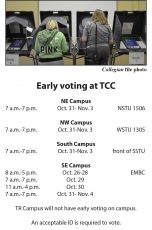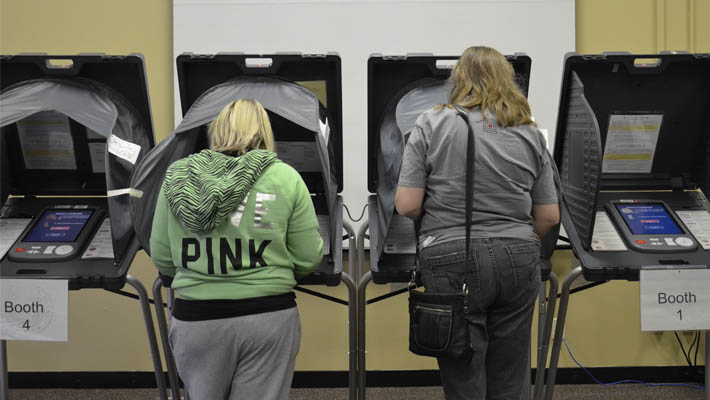By Katelyn Needham/ managing editor
Whenever her students feel discouraged about voting in this year’s election, NW history and government professor Laura Wood uses an ice cream analogy.
“Like I tell my students, elections are not the same as going into an ice cream shop that only has two flavors and you are not crazy about either one,” she said. “So you leave and just decide not to have ice cream and no big deal. In an election, there WILL be a winner and in government whoever wins can affect you and your life — so stand up and make a choice.”
Wood and other government and history instructors are urging students to get involved and go to the polls Nov. 8.
“It is extremely important for students to get informed, then get out and vote,” South history associate professor John Lundberg said. “An uninformed voter is actually more damaging to the republic than a non-voter. It is the responsibility of everyone to educate themselves about the candidates and the election.”
Four out of the five campuses have early voting locations, and Lundberg said students should take advantage of that.
“You only keep rights when you exercise them,” he said. “When you do not exercise the right to vote, you risk having that right taken away at some point.”
SE history professor Greg Kosc believes when students choose not to vote, politicians overlook the issues important to them.
“As a citizen, it is incumbent on each of us to remain informed and engaged,” he said. “I think students have a great stake in the election. Students, I think, are in the position to have their voices heard and to potentially make policy change, like with student loan debt and whether or not community college should be free.”
Kosc, Lundberg and Wood stressed the importance of being properly educated as a way to encourage more young people to vote.
“I think one of the things that’s hindering student engagement generation after generation is a lack of consciousness,” Kosc said. “We do not teach civics in our middle and high school. There seems to be a very watered-down, bland, boring history, which immediately allows them to disengage from our politics. There is a system that is designed to make students apolitical and ignorant.”
Wood also advised the importance of staying involved even after the election results are in.
“Even if your candidate does not win the election, it does not mean you cannot continue to have a voice,” Wood said.

